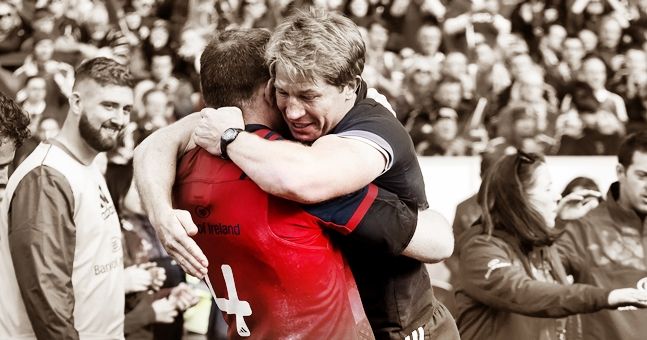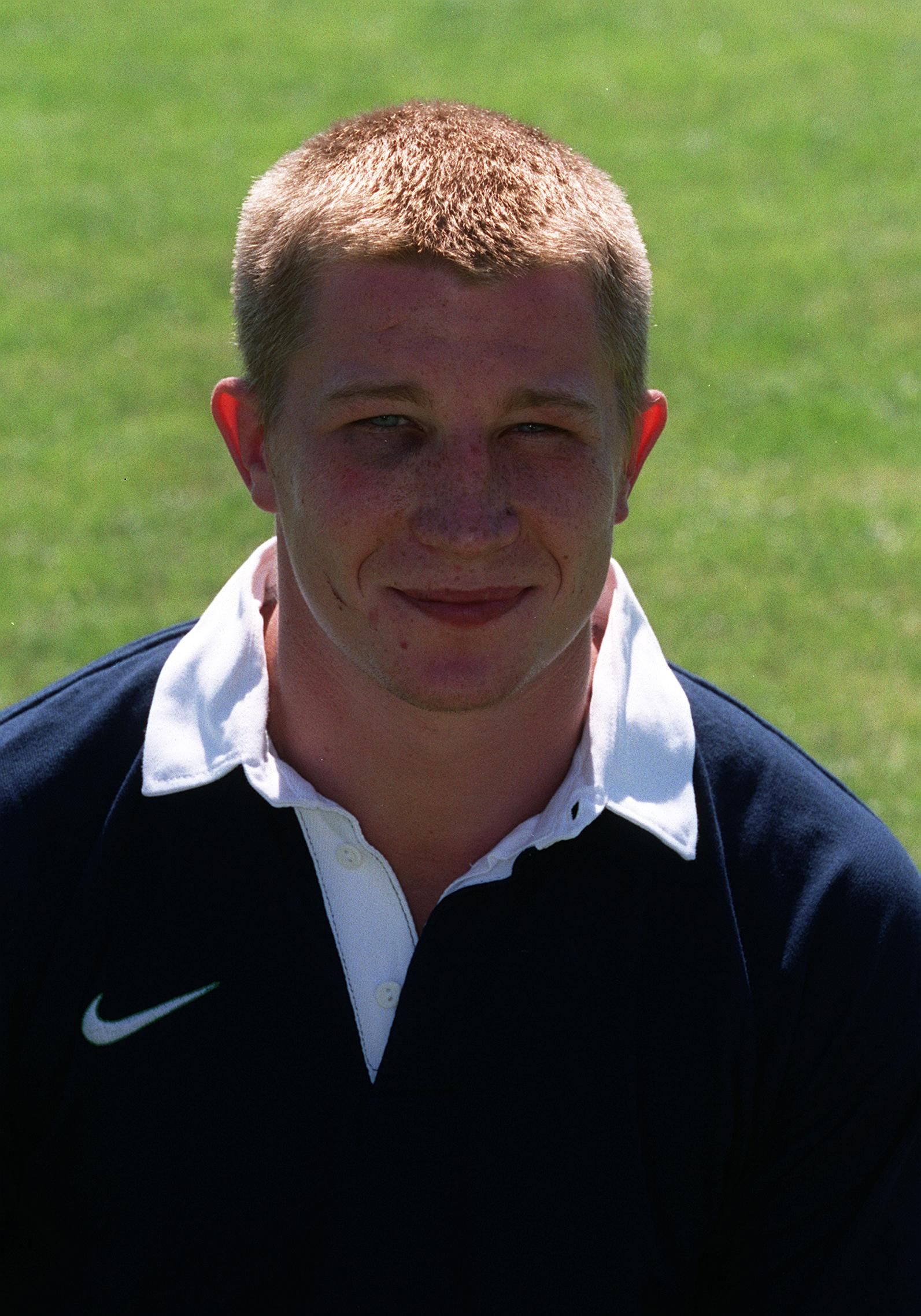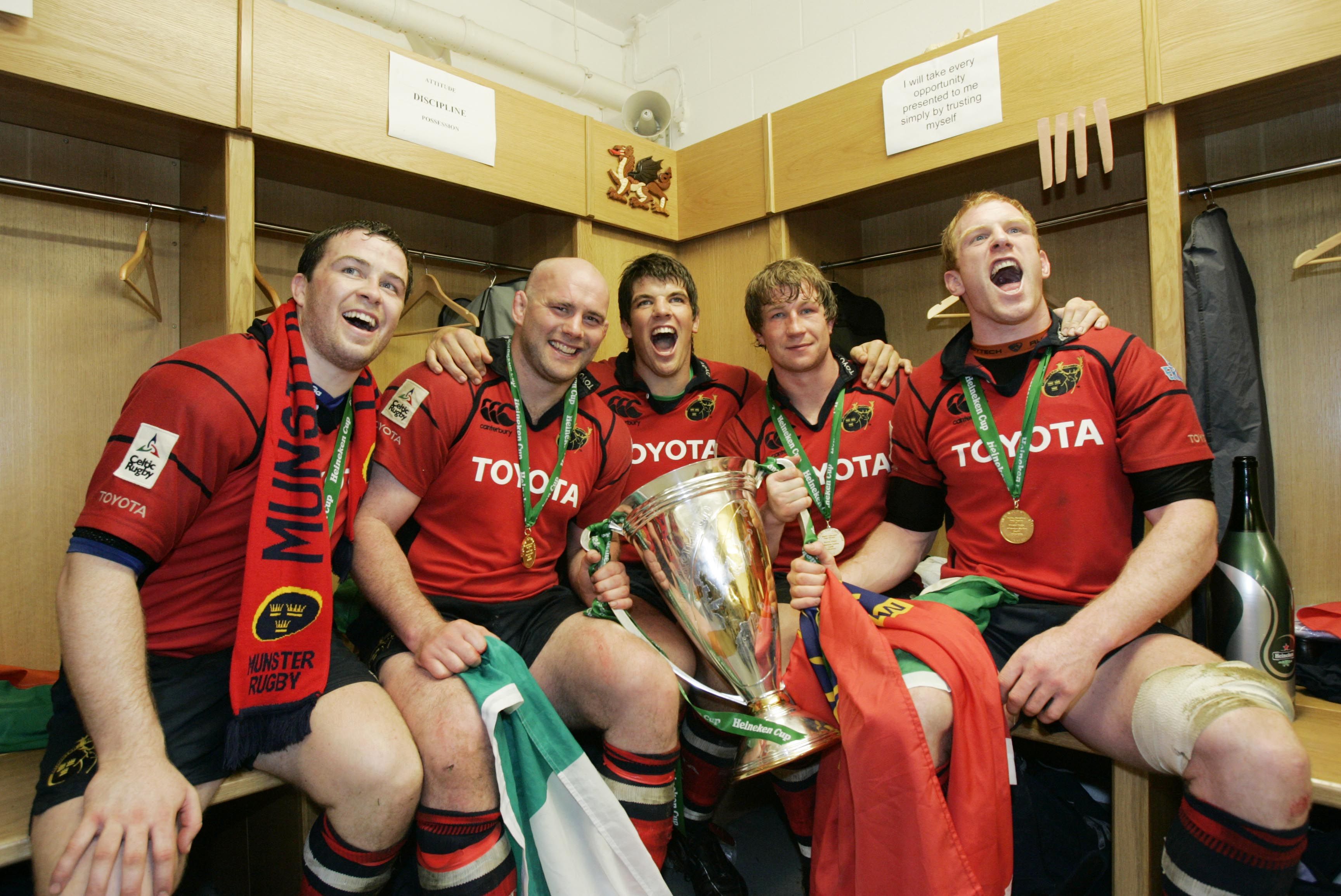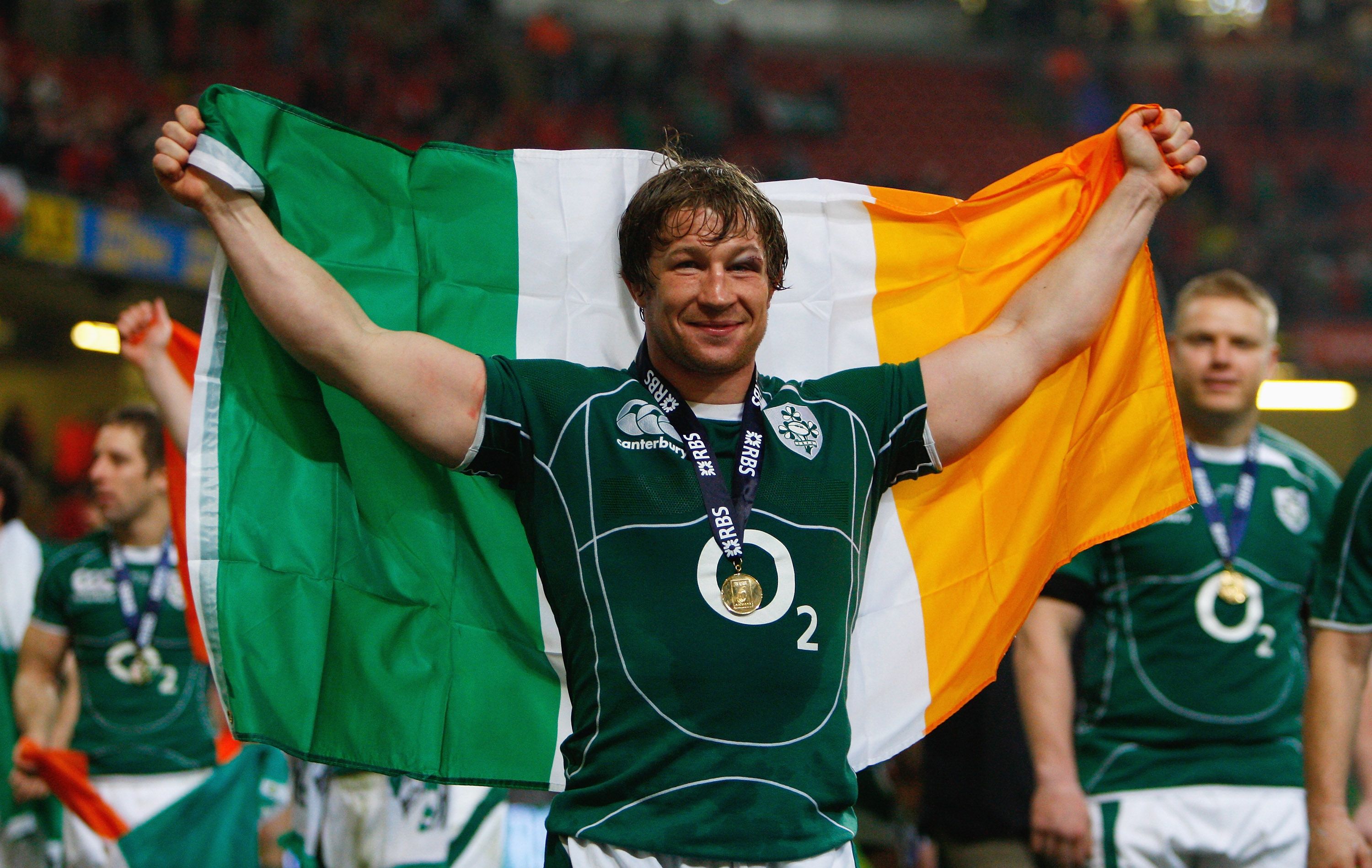

Share
21st April 2017
06:07pm BST

“It feels as if this season has been going on for five or six years,” Flannery says as he reflects on all that has happened in this tragic year.
On Monday evening, Flannery held his 9-week-old son Ezra in his arms as he talked about the past and what the future could hold for himself and Munster.
He knows how little he knows, he says, and when it comes to life and death, he knows as much as the rest of us, which can feel like not very much at all.
Grief is one of those things that can bring perspective, but it also brings clarity. In Munster’s case, it has brought a return to first principles. Flannery credits Rassie Erasmus for establishing a pathway out of the darkness which came with Axel Foley’s death. Erasmus provided a framework, he says, and a way of bringing some sense to it.
“It’s a privilege to play for Munster, it’s not a burden,” Flannery says, recalling Erasmus’s message. “A burden is to lose someone close to you like Axel, so we shouldn’t feel that pressure. If it doesn’t go well, so what, you lose the game. There are bigger things that could happen to you.”

So this season which has moved painstakingly slow reached a decisive point at the Aviva on Saturday. Saracens proved too resolute and exacting but Munster potentially have four games left this season and a PRO12 title at stake.
Flannery will be reasonably helpless when those game begin, helpless as all coaches are, but it’s something he is getting used to.
When he returned to Munster as a coach in 2014, he had a lot to learn including some fundamentals. As a player, he had been a messer. The players identified by those on the outside as future coaches were always the serious-minded ones, not the messers, no matter how committed they were. When he started coaching, it took some time to figure out how to be himself.
“You know, it’s tiring not being yourself. I didn’t feel like I had a lot of value to bring to the group as a coach so I was thinking I’ve got to try to be somebody else. With time, I realised that the most important thing with anyone is that you’re honest and people see things if they’re contrived or if they’re not authentic.”
The seriousness was always there too, but there were other struggles as he attempted to establish his identity as a coach.
“I wanted people to see Munster winning so they thought ‘He’s a good coach, Munster are winning’. I obviously want Munster to win because I love Munster, but I wanted them to win because then they see he’s a good coach. And that’s all I cared about. I would spend the whole week building up, building up, building up and then we’d play the game and if we lost the game, my week was destroyed and I got nothing from it and I didn’t really enjoy the job.”
The adjustment was crucial. Playing was a straightforward business, well, as straightforward as endless obsession and a relentless desire to improve can be. Paul O’Connell said he had never encountered self-belief like the self-belief he found in Jerry Flannery.
Most people saw the belief, they saw the confidence and self-assurance when he appeared on the Late Late Show, but what they didn’t see was the fear that drove the self-belief.
“I get pretty obsessed about things. I tried to explain this before to someone, it’s almost that I have an inferiority complex that drives me. I started training on my own quite a lot when I was about 14 and I would go out running. And I used to always think, ‘Jesus, if there were other fellas running with me, they’d be so far ahead of me’.”
So he kept running, kept ahead of the other runners running in his head. He was an only child too which brought a different perspective. “You feel a bit more of the pressure when you’re the only child. My parents never pushed me into anything or drove me into anything, but I felt the need to be successful. I don’t know whether that’s dissipated a little bit if you have siblings.”
He was selfish too, he says. “I suppose I was driven because it was all about me. I don’t have any other viewpoint.”
Sport was where his obsession, his selfishness or whatever it was that would soon look like self-belief manifested itself.
When he was 14, he was playing football for Fairview in Limerick one evening when somebody approached him who had seen him playing in the Junior Cup for St Munchin’s.
“You’re going to play for Ireland one day,” the man told him.
In the background, he could hear his football friends giggling, but at that moment, he had no doubts.
“In my head I went, ‘He’s right, I am going to’.”
When he explains it from here, from a room in Munster’s training centre on Monday afternoon, it all makes sense. The path seems natural and inevitable, but even with the self-belief, there were moments when it didn’t seem that way.
“If you Google me, you go, ‘Ah, he had pedigree all the way’, but I went so far off track at times that you have to be very, very driven. When I talk to young players now I say the story of my career is the same as a lot of others, it’s just that I’ll tell you there were times when I’d go, ‘Jesus, I don’t know, is this ever going to work out?’
"That voice is there for everyone, but you just have to say, ‘Look I’ll just stay the path, I’m going to believe I’m going to get there’. And you get there eventually.”

There was always that voice and there will probably always be that voice. When he talks to young players who want a little bit of what Jerry Flannery has, he reminds them of that.
“When a player is aspiring to get somewhere, they ask Paul O’Connell what it was like to captain the Lions and he says it was incredible. Then they think, ‘I’m going to have that self-belief’. And they believe, but then that voice comes in and they think, ‘O’Connell never told me about this’. You have to prepare them because this is something that happens and then you’re so much more empowered. You’re not bullshitting the player, you’re preparing them for what the reality of it is.”
He can speak all day on this stuff, because this is the stuff that has shaped him and now he wants it to shape the next generation.
“A lot of time, when young players experience self doubt they feel like it’s a weakness on their behalf. But you tell them, ‘Listen, this is what happens, man, expect this, it’s going to come. Embrace it. This is a step towards getting to where you want to go’. There’ll be times when you go, ‘Fuck this isn’t working out, we’re going to get hosed here’. And then you’ll go, yeah, thought this was going to happen and then back on plan again.”
His time as a player at Munster was spent in the company of similar, remarkable men who all shared the same obsessive drive. They all felt, too, they had something to prove.
Munster were the outsiders then, the group that felt they had to do more than the others to be recognised at national level.
“I always felt for us growing up, Munster teams and the Munster clubs in the AIL, they were the underdogs a little bit,” he says. “The Irish teams that were picked used to be full of Leinster players, the Irish schools teams and the Irish 21 teams were predominately Leinster. We used to feel we had to work harder if we wanted to get there. Now it obviously changed as we got older and Leinster are an incredible club now. That’s just something I felt growing up in that era.”

Flannery added it to the list of obstacles he had to overcome, the list that kept him going, the runners who would be beating him if they were ever pounding the roads with him, which they weren’t.
Even then, he appreciated that he was in a squad where an extraordinary group shared this drive.
“Everyone looks at Paul O’Connell and thinks he’s one of the greatest rugby players that Ireland ever produced and he is. They say, ‘Look at him, he’s a man mountain’. I met Paul before he was a man mountain. I watched him at 16 just being a lanky skinny fella, who just kept working on his game all the time and was very driven and played to his strengths and he kept getting better, kept getting better and kept getting better.”
Looking back, he says there were things he didn’t appreciate about how special it was, but he also points out once more that Munster were given a “period of grace” before they won the Heineken Cup in 2006.
“The benchmark wasn’t it has to be silverware every year, it was give your all. That’s what the benchmark is - if you go out and give your all then that’s good enough. But then that team stayed together, and when a team stays together it gets tight and you weed out some dead wood. Then we got greedy and wanted more and more.”
As a squad, they had an unusual capacity for articulating what was needed to succeed. They could talk about what was going on, about the doubt as well as the certainty.
He hasn’t read many of the autobiographies his team-mates have written, but he did watch Ronan O’Gara’s documentary and what stuck with him was O’Gara’s explanation of what others perceived as selfishness.
“ROG said, ‘When I’m coming into a game, I am so nervous. Just because I’ve played 90 or 100 times it doesn’t mean that I find this easy. And I have to embrace that and I have to prepare myself for it’.”
Flannery understood this, that this feeling of anxiety was always there and was preferable to the alternative, complacency.
“I think it’s important as well when you talk about belief you have to mention that that voice is always there, you know. You just have to be brave and tell it to shut the fuck up and say, I’m going to prepare as well as I can. Then when it comes to the Saturday, you almost say I’ve done everything I can so I’m going to go on the field and I’m not going to be afraid.”

He was never afraid of admitting to the emotions, something which was easier as success came his way. “Maybe it’s easier when you’ve had a little bit of success so you can say this works for me and if you want to criticise, I don’t give a fuck.”
When the careers of these players came towards the end, he acknowledges that things could have been handled better.
“Probably there should have been better succession planning for Munster. The likes of Mike Sherry, Conor Murray, Zeebs just got dropped in there and were told this is your team now and you took an awful lot of experience out. The transition there was not done as efficiently or as fairly as it could have been for some of the younger players.”
When he retired and left Munster, the reality of what he had there became clear. "I probably went to a couple of other rugby clubs as well and I saw what they were doing and it was different to what I would have known. We had an awful lot of players who were incredibly self-driven and who loved Munster.”
Retirement brought another opportunity to engage with the voice. “When I retired from rugby I was pretty lucky. I had options. I had got involved with Niall McGarry and JOE [Flannery is a shareholder in Maximum Media], and with the pub so I had options to go and do things. When you retire you’re really nervous, so much of your identity is tied up in being a rugby player that you’re afraid that ‘Shit, I wonder if that’s the only thing I’m good at’.”
His time at Arsenal as a strength and conditioning coach made him realise how much he loved rugby.
The manner in which football develops his young players continues to bother him, especially as it is concealed to some by the money a few will make.
“People get so fixated on money. For every guy who is earning 50 grand a week in the Premier League, there are 300 kids who left school at 15 years of age and whose dreams are shattered and they probably had as good a chance as this guy. So it’s like winning the lottery. You can do everything you want and because it’s a global sport, I used to see kids coming in for trials from Sweden, from Brazil, they’d walk into the dressing room and they’d understand that this is a business. It’s strange to see at 15 or 16. 14, even.”
But while there is money to provide alternatives and dull intelligence, it’s hard to see how things will change.
“The clubs have a duty of care to try and put a work ethic in those players. When you start paying those kids 10 or 15 thousand a week, it’s pretty hard to keep your head screwed on. The clubs are just boxing clever, they’re not going to make it as first team players and they’re going to get shipped out. If they don’t have a work ethic, it’s a tough place to be. To be dropping down divisions after everyone has been telling you since you were 9 that you’re the next big thing.”
In 2014, he returned to Munster as scrum coach, working with Axel and driven again by the desire to succeed in coaching and by the voice which expressed all the doubts.
Victory was what he felt would define him as a coach, but that has changed, even if he is aware that he is starting again in this new role. “For your own happiness and peace of mind as a coach, it cannot just be dictated by victory.”
When he first came back, he would talk about these things in the car with Ian Costello and other coaches. Costello left last year to become head coach at Nottingham, something Flannery couldn’t understand then, but now he does.
“If you had said to me at one stage I would have said, ‘Why would anyone ever go to that club?’ If you can’t win, what’s the point’. That’s the way I was. Now I understand that you can improve and you can build towards something.
"You may not win the first year, even when I met Rassie initially, I was just like, ‘All I want to do is for Munster to win, All I want to do is for Munster to win’. I don’t know what he thought when he met me first, but now I understand, we’ve spoken about it since, I understand it’s not just about Munster winning, it’s about building something where we’re sustainably within touching distance of winning.” He pauses and adds with a smile, “I never want to become Arsenal now.”
He credits Erasmus for much of this education, while so much came from the way Axel and the new director of rugby were able to build a relationship during the months they worked together.
As a collective, they created the environment where the players could feel as empowered as his generation had. Flannery marvels at the work-rate of the players and feels Ireland has everything a young player could want if they wish to improve, while Munster will always have to do it a certain way. There may be a financial restriction which prevents them buying talent like French clubs, but there is a more fundamental reason as well.
“We’re not going to go out and buy 15 players. People don’t want to come to Munster games and see 15 guys, 15 superstars that nobody has any affinity with. They want to see players who love Munster playing for Munster. Then you can strengthen that team with a couple of marquee signings, but the core of the team must be something the supporters can recognise.”
They recognise the team these days, even if it has developed from the most tragic of circumstances. Flannery has had to process these things, to try and learn from them as he learns from everything.

His eldest child Eli is 17 months and Ezra is nine weeks old, so there is a lot learning to do there too.
Fatherhood puts things in perspective, he says, but when you ask him what that means, it turns out to be something more than you might expect.
In the past, he says, nothing got in the way of rugby.
“When I was playing rugby, winning and performing well was the most important thing in the world to me. I could burn through relationships. If there was a friend who I felt was not good for me rugby-wise, they'd be gone out of my life. I could very easily shed things. Now I see it differently.
"Rugby would have a huge effect on my mood and my general well-being. If you have kids then, it gives you something else. I don’t want to use perspective again in case you chew the head off me.”
But it hasn’t altered the ambition and the need to come to terms with the self-doubt.
“It’s not that you don’t try as hard but there’s another element to your life and it helps you put rugby in terms of priority in my life. While it hasn’t been relegated massively, there’s something up there as well and that’s looking after my family. All the things I liked doing before I became a dad I still liked doing, but now there’s something better.”
Yet, looking after his family brings him back to rugby. Now, they help make sense of the obsession and provide further reasons to silence the voice expressing doubt.
“You know the way people talk about religion and the idea of giving yourself up to something else, to a higher power? When you’re in the slog and you’ve done so many hours and you ask yourself, ‘Why am I fucking doing it?’ It’s easier when you’re doing it for your family.”
Explore more on these topics: